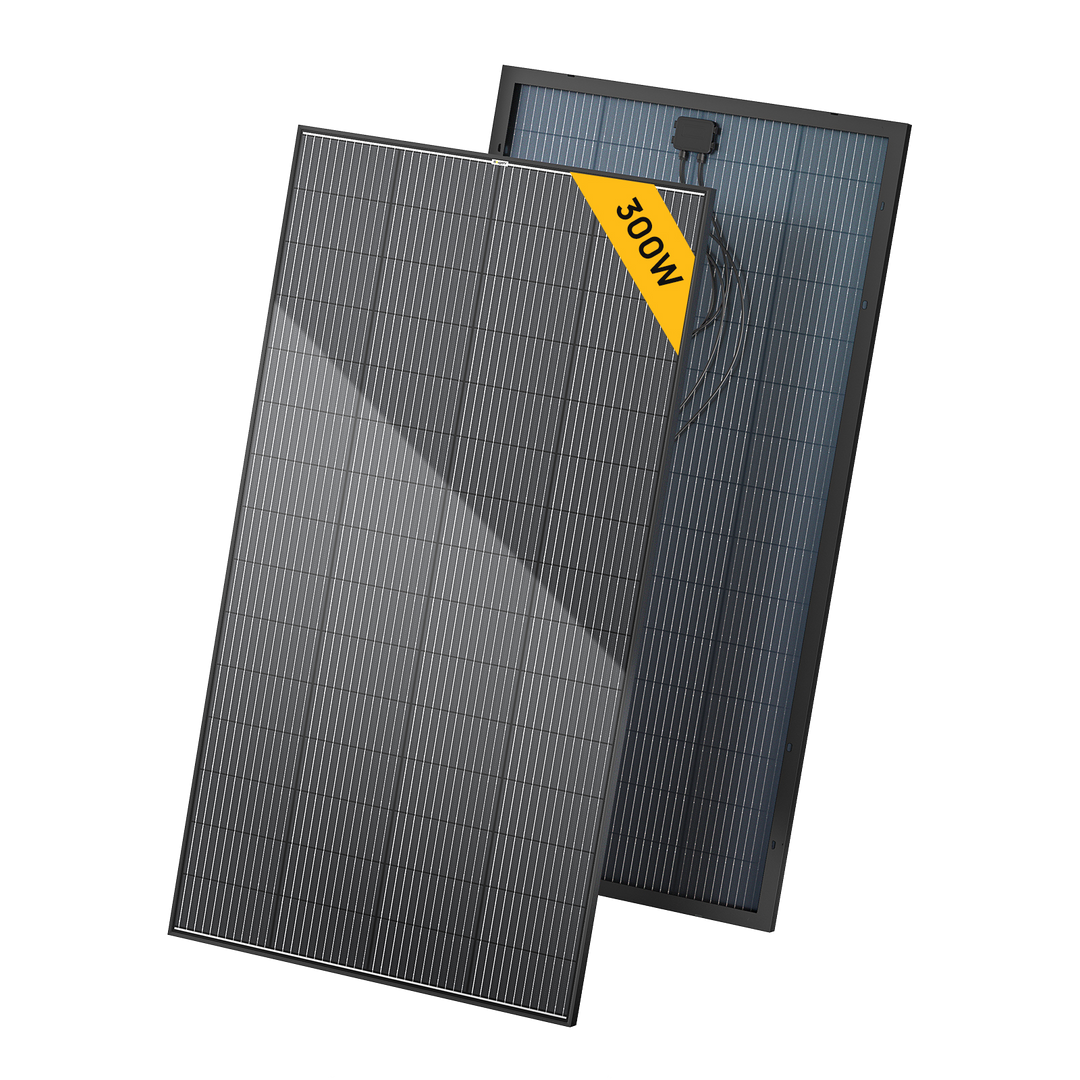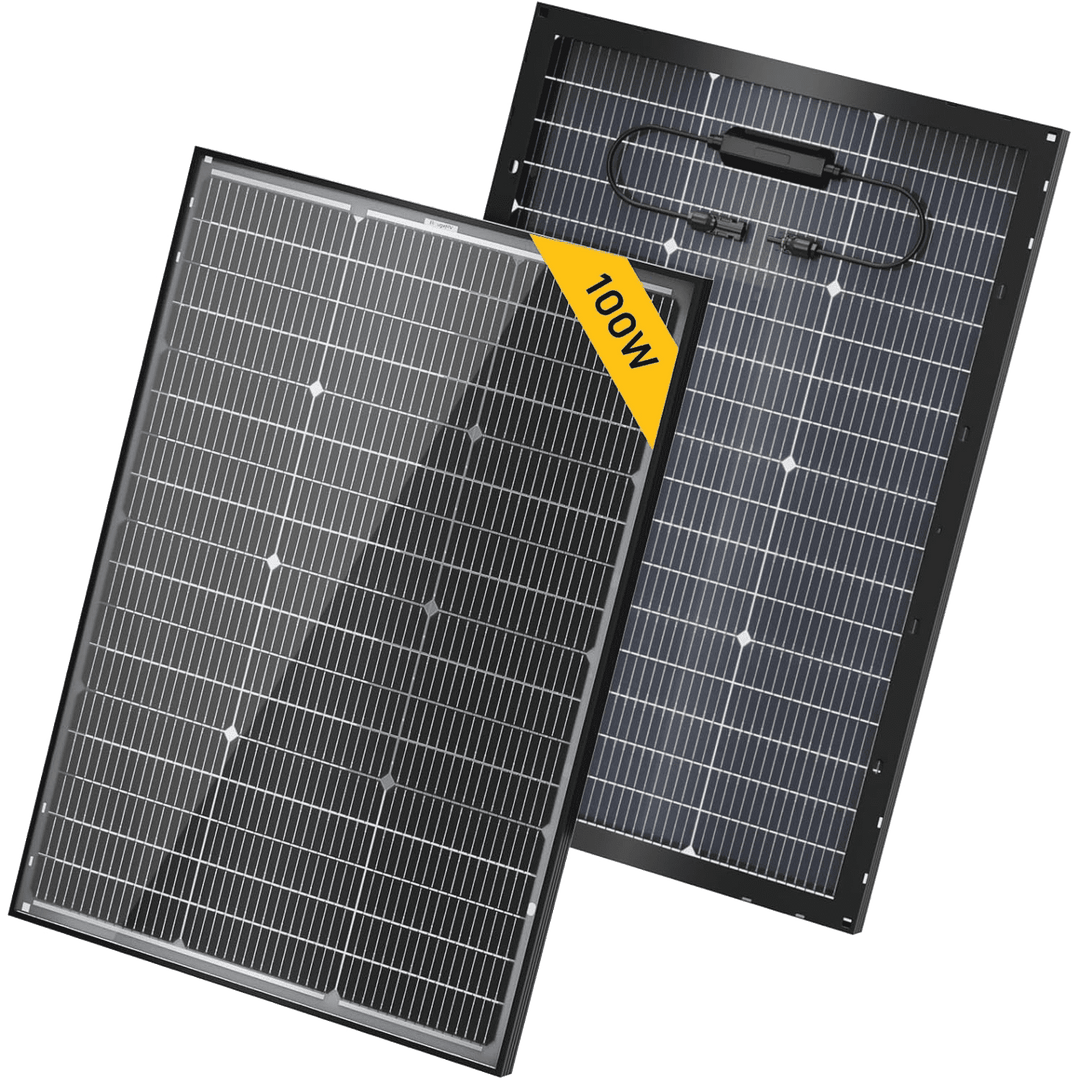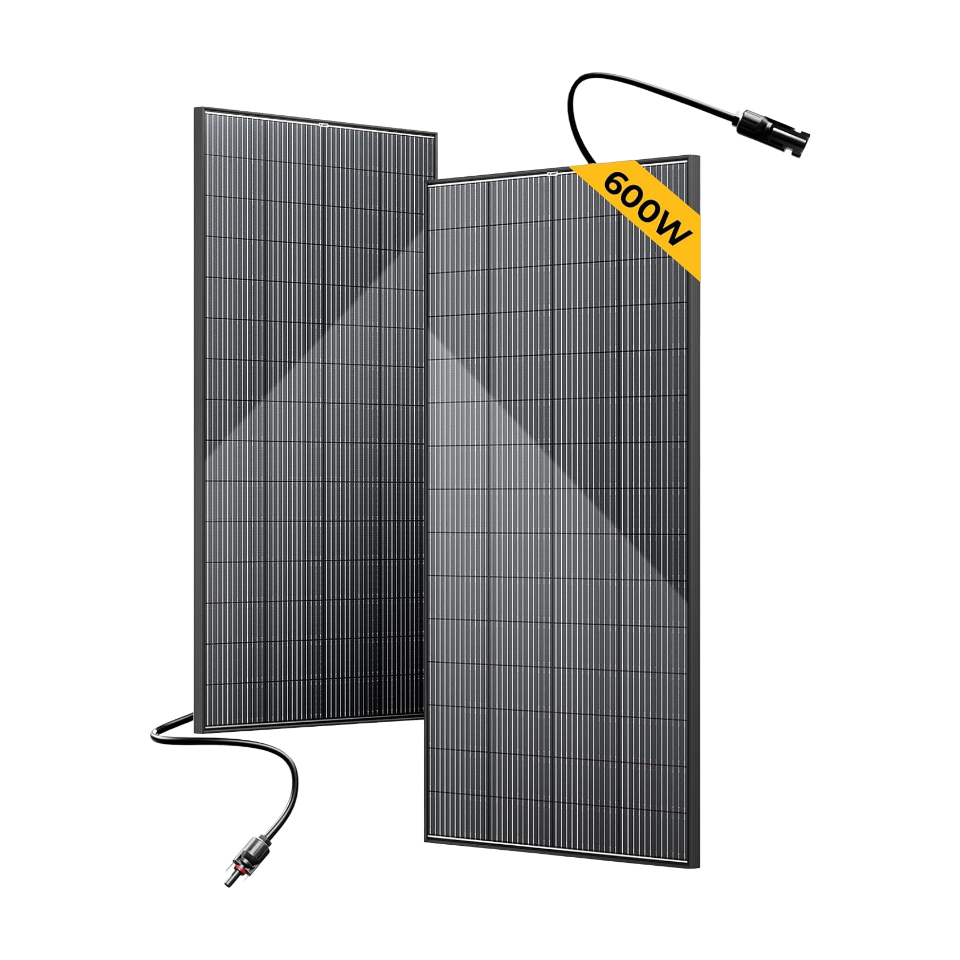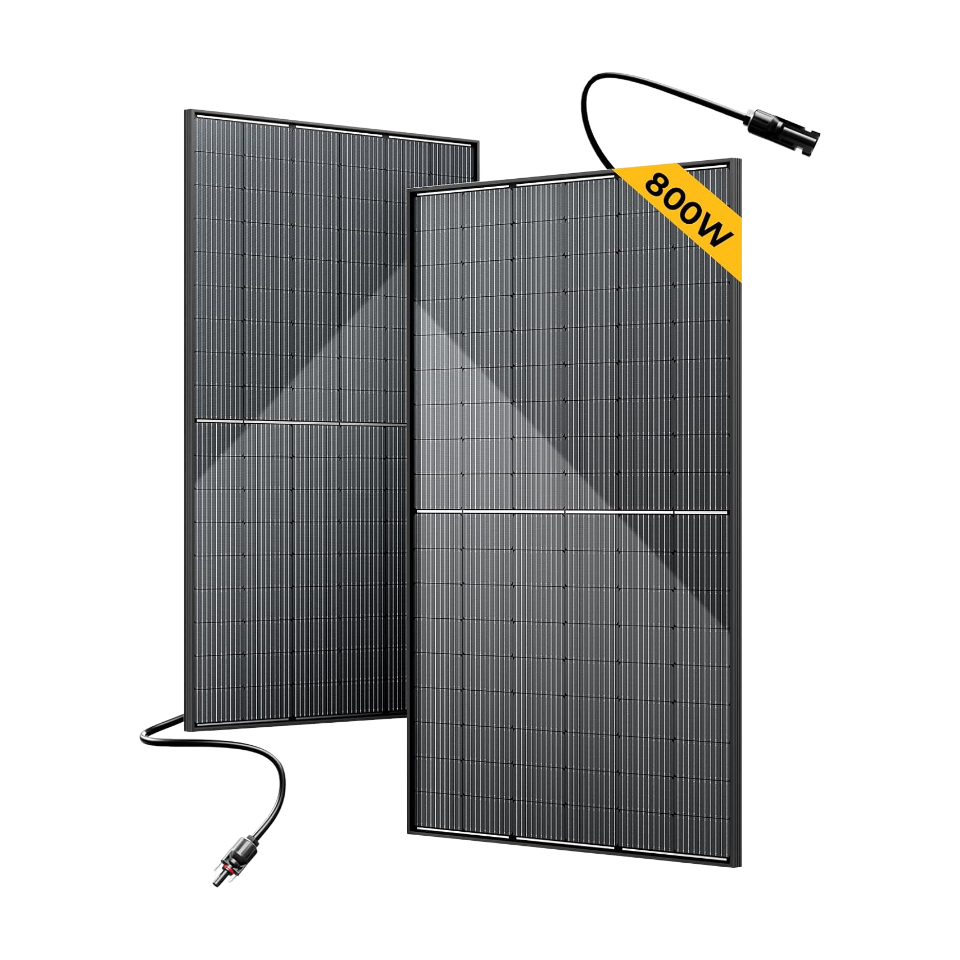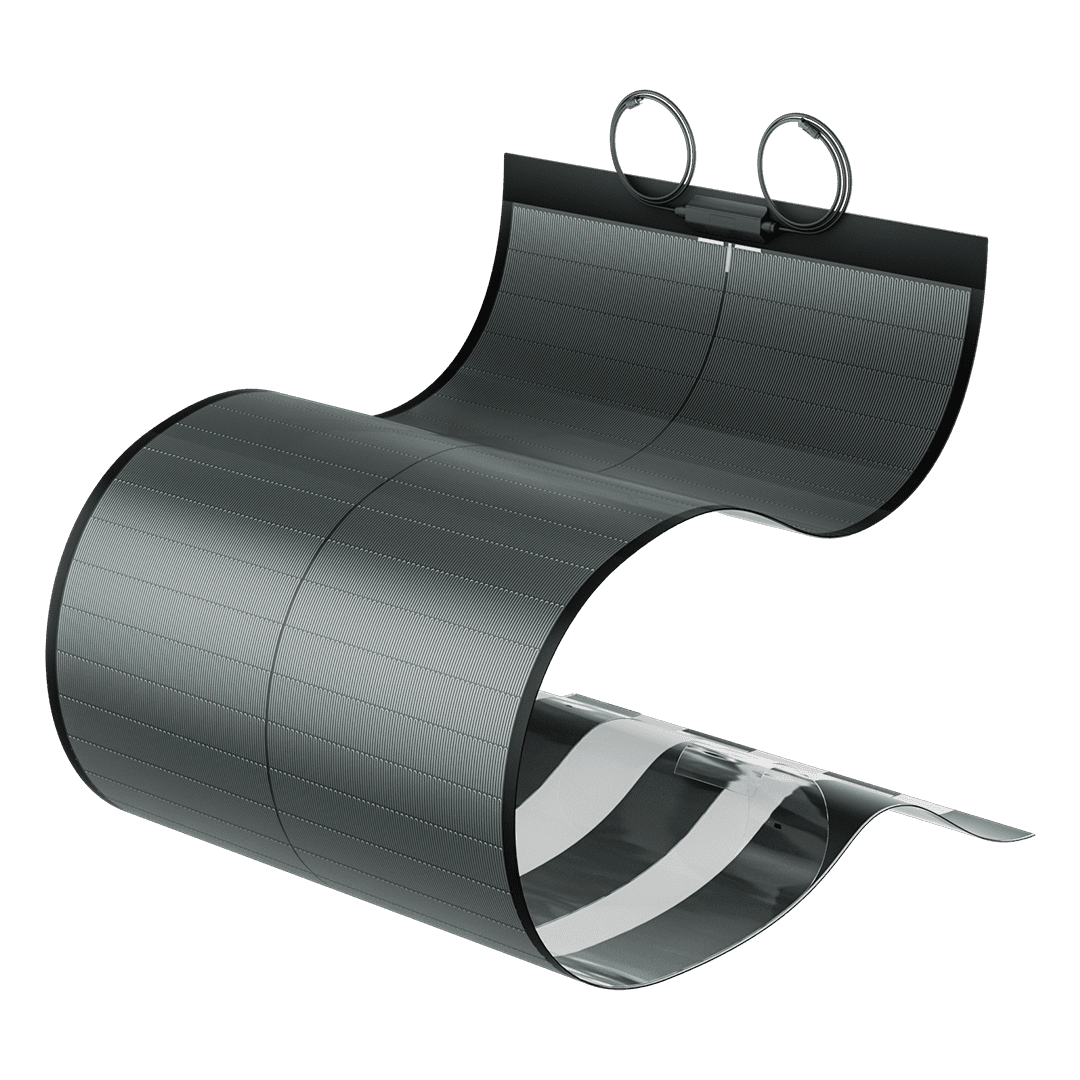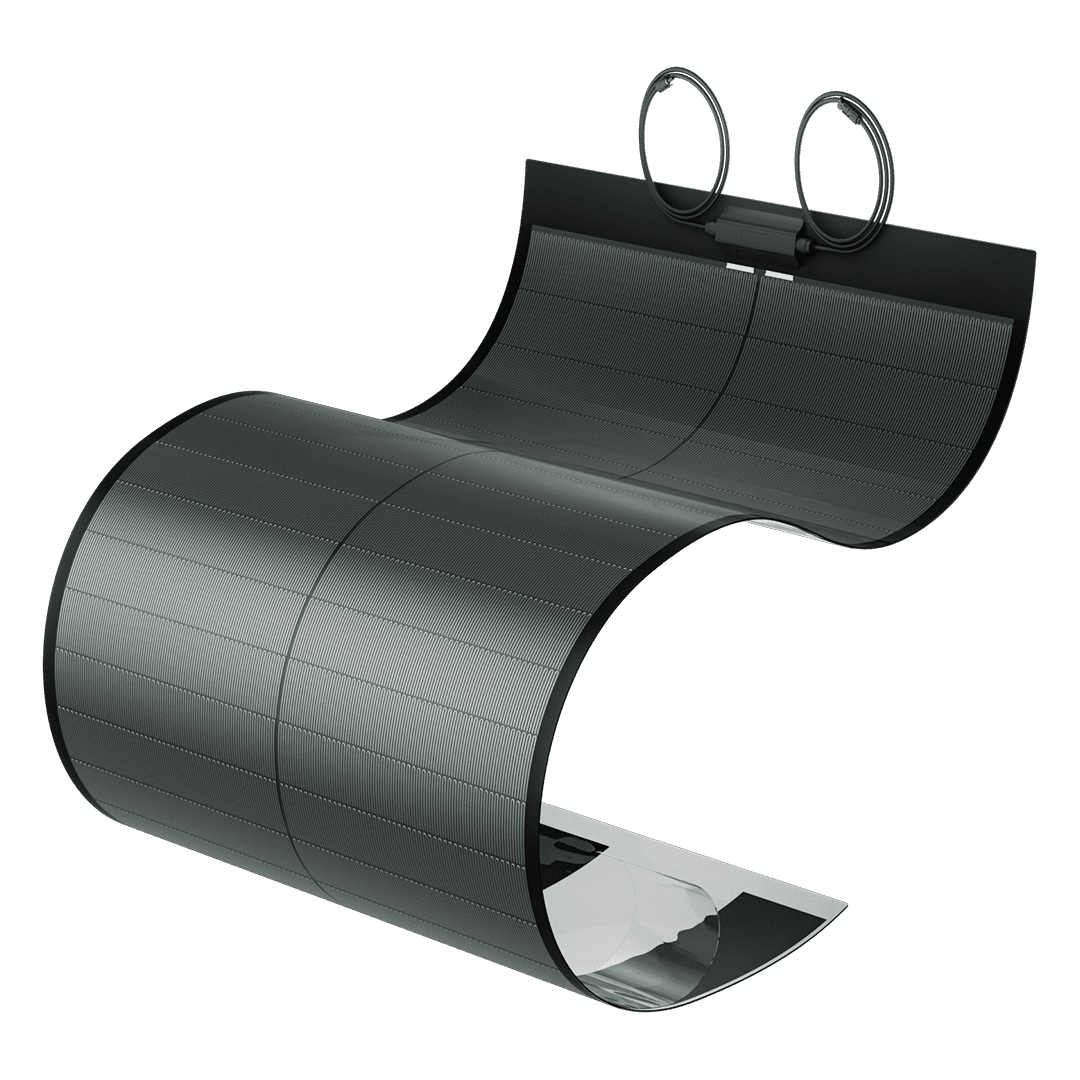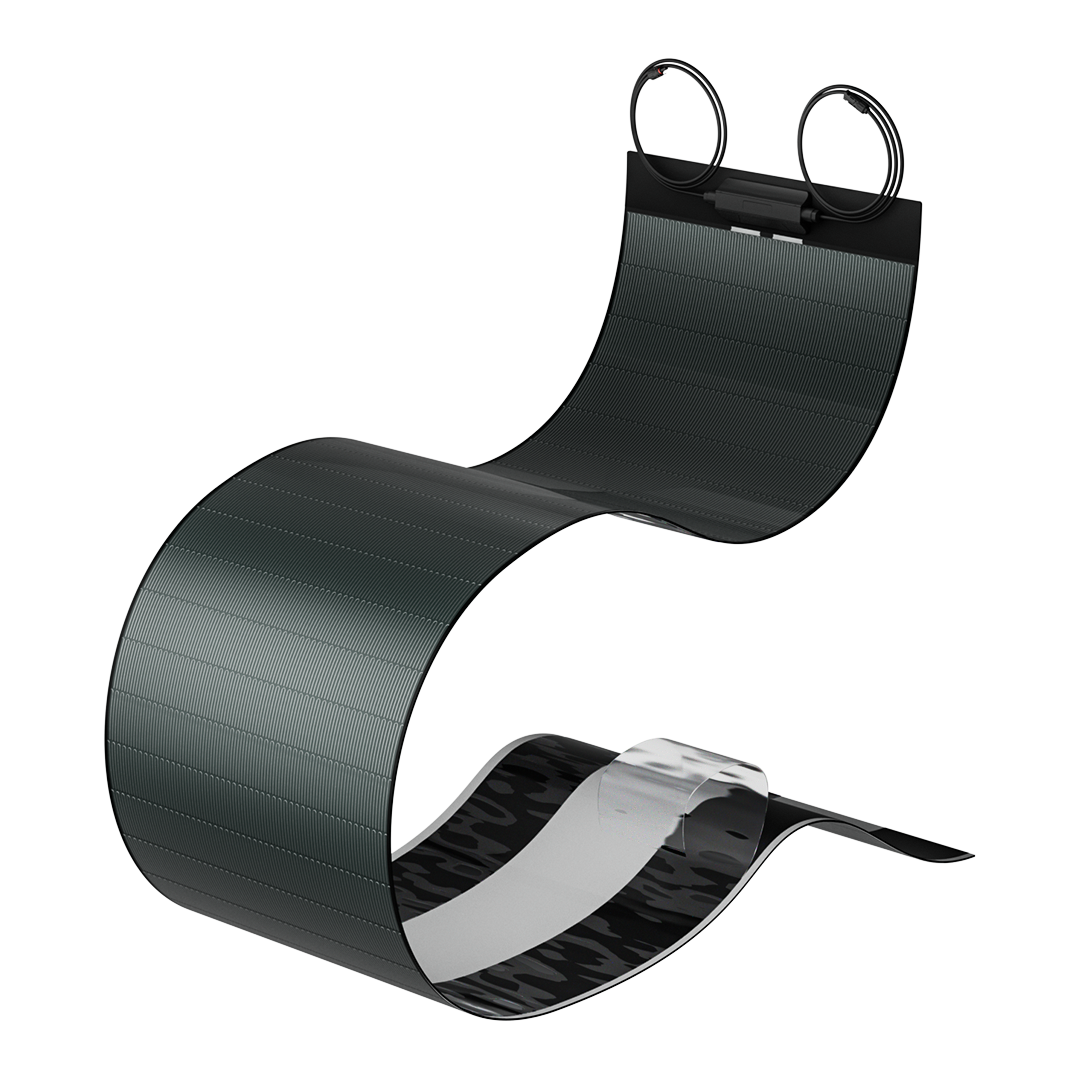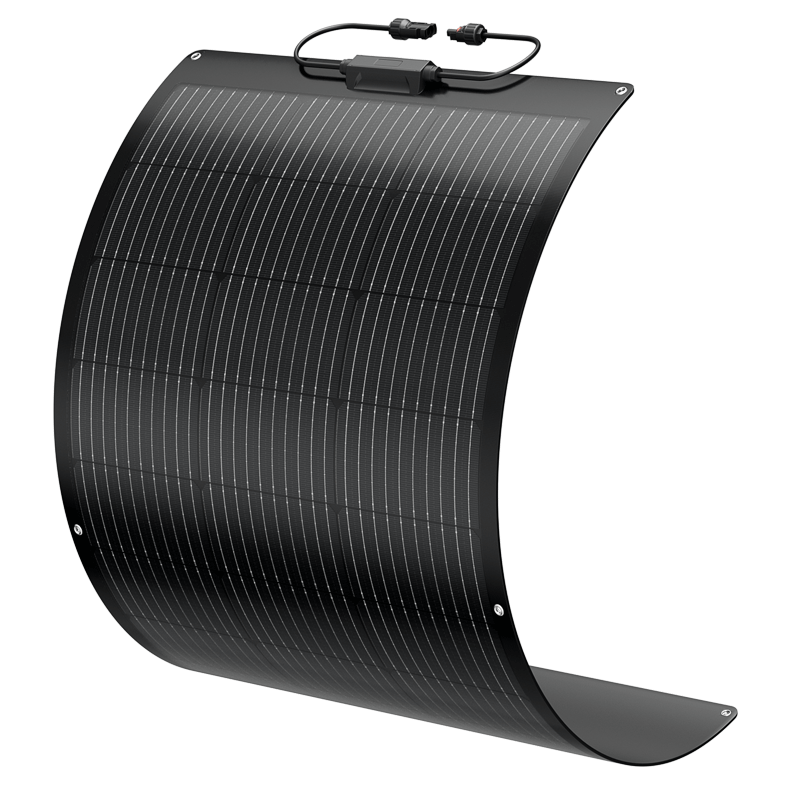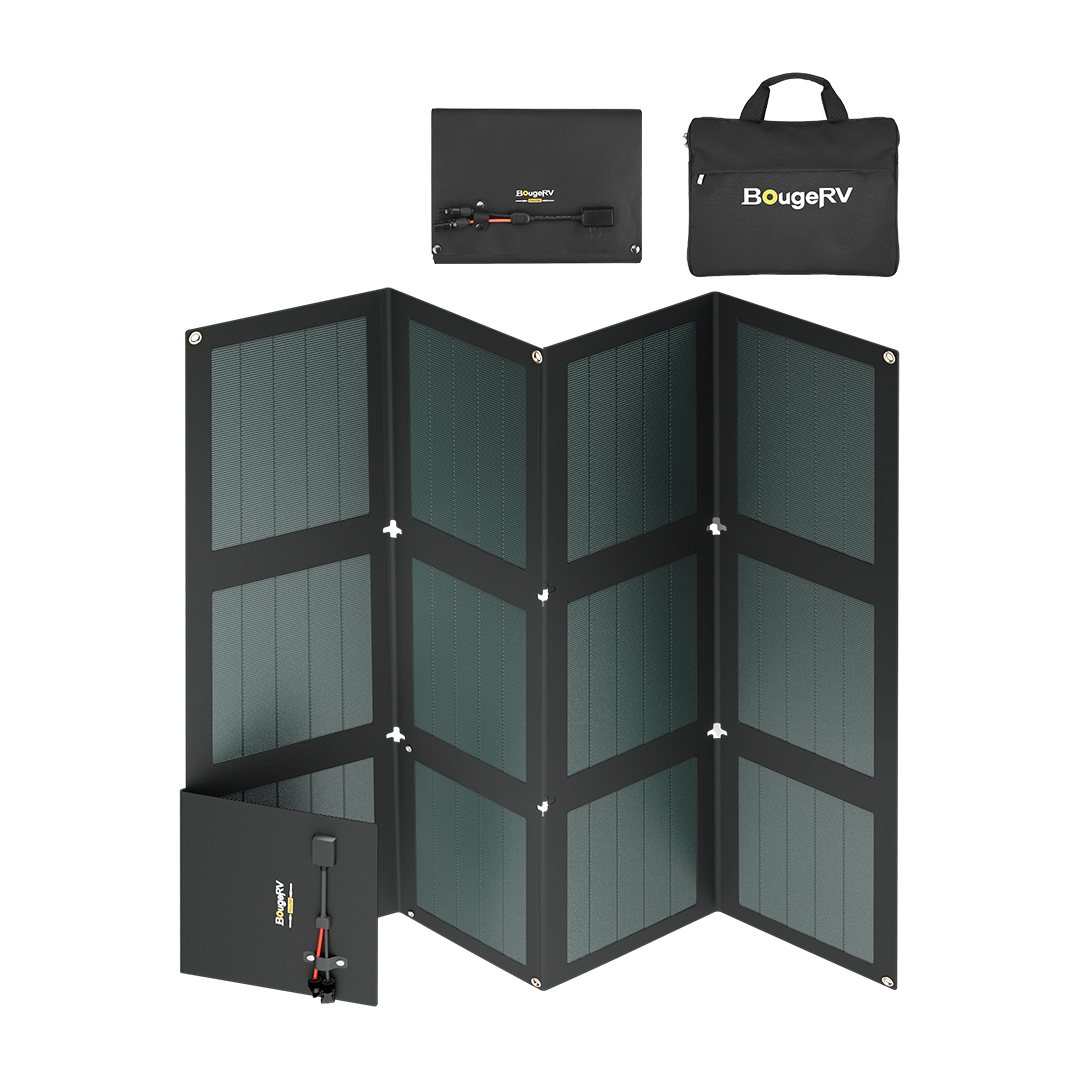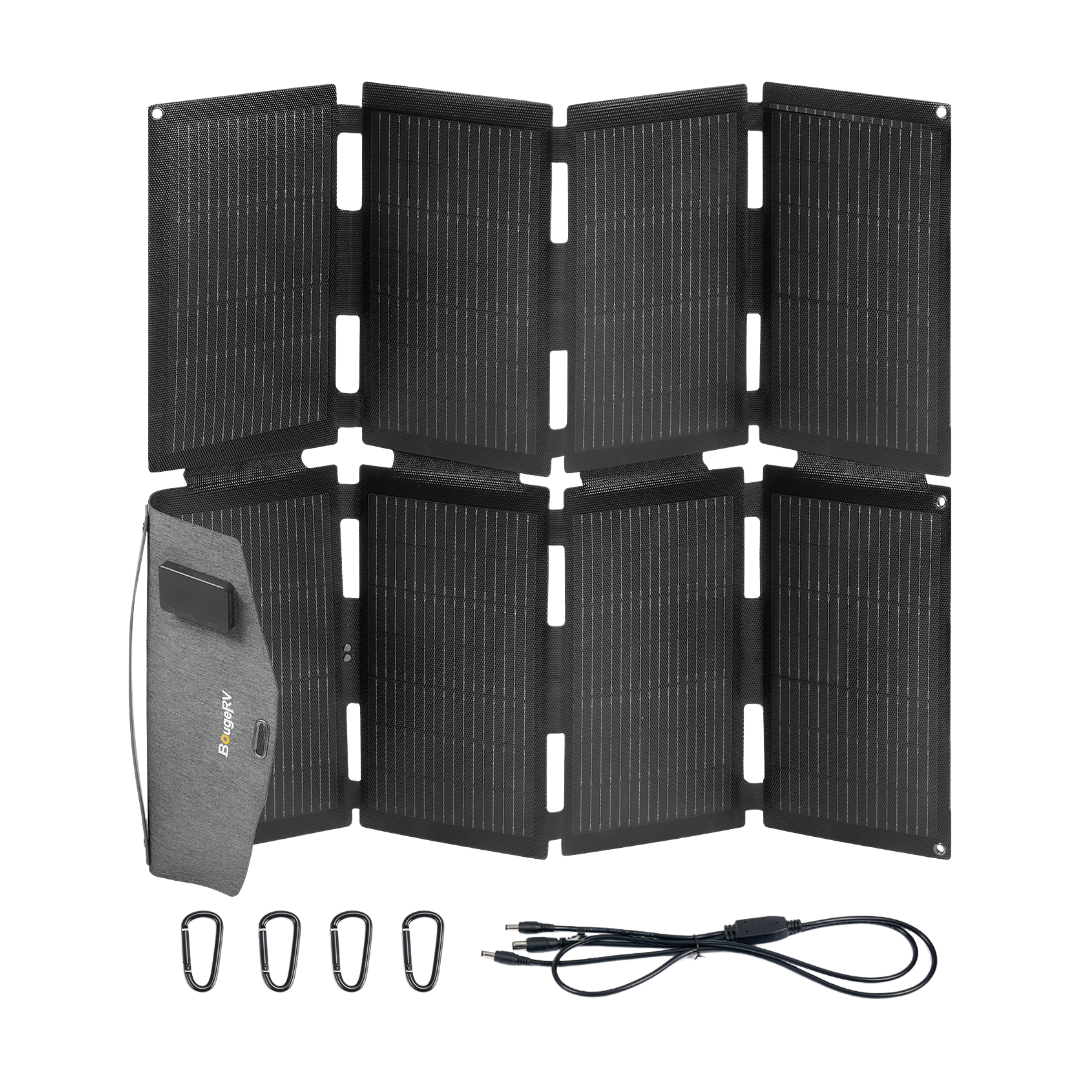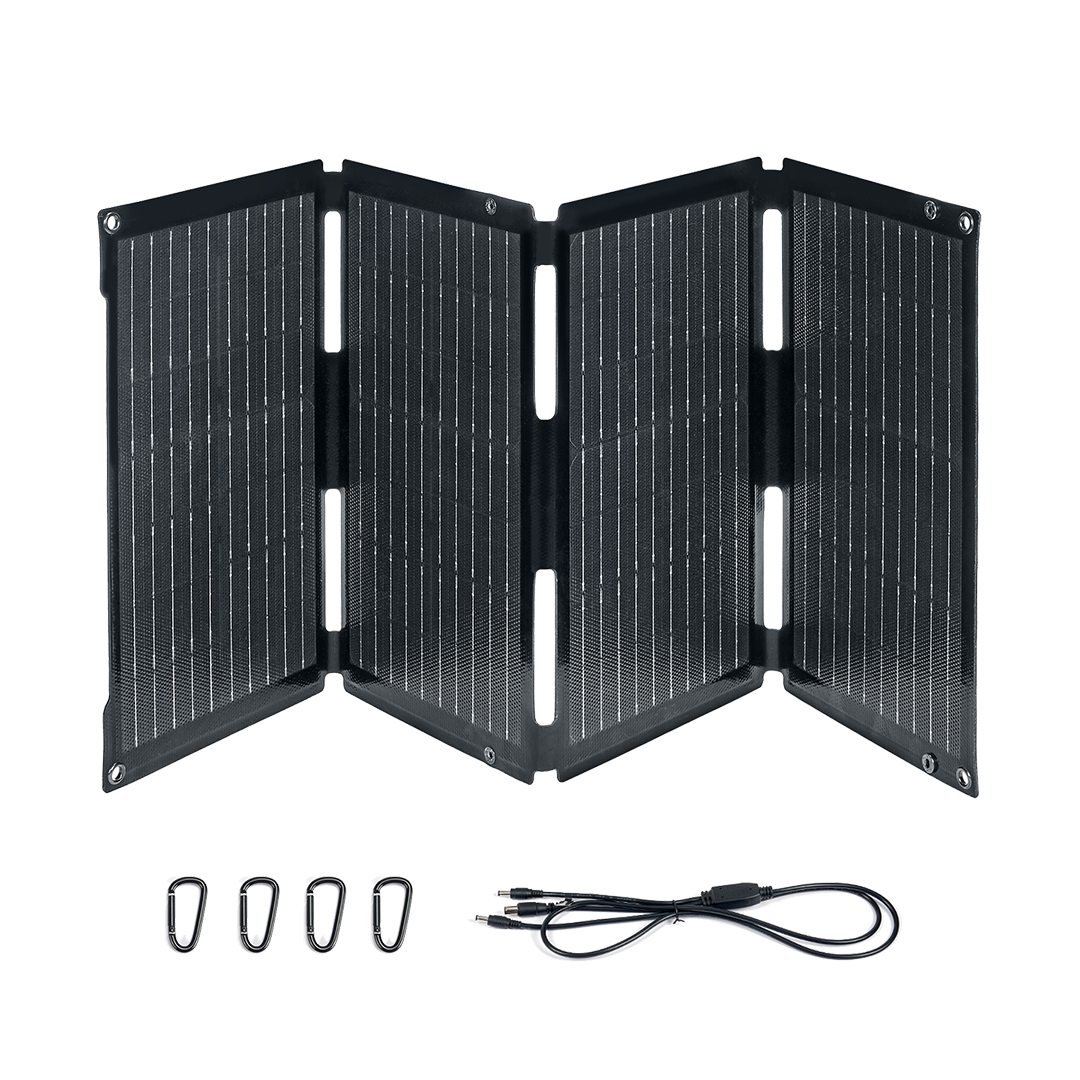Mono series
Rigid solar panels

Yuma series
With adhesive

With holes

 Zoomable Camping Flashlight
Zoomable Camping Flashlight
 BougeRV AL05 Multifunctional Area Light Rechargeable Outdoor Headlamp
BougeRV AL05 Multifunctional Area Light Rechargeable Outdoor Headlamp
 BougeRV AL05 PRO Multifunctional Area Light Waterproof Camping Light
BougeRV AL05 PRO Multifunctional Area Light Waterproof Camping Light
 BougeRV AL06 Portable Camping Lantern Rechargeable Emergency Flashlight
BougeRV AL06 Portable Camping Lantern Rechargeable Emergency Flashlight
 BougeRV AL07 Rechargeable Camping Light Ambient Lantern
BougeRV AL07 Rechargeable Camping Light Ambient Lantern
 BougeRV WL02 Waterproof Work Light for Outdoor&Garage
BougeRV WL02 Waterproof Work Light for Outdoor&Garage
 BougeRV WL01 LITE Rechargeable Work Light 180° Rotate Job Site Lighting
BougeRV WL01 LITE Rechargeable Work Light 180° Rotate Job Site Lighting
 (Upgraded)277Wh Battery For Fridge
(Upgraded)277Wh Battery For Fridge
 JuiceGo 240Wh(Pure Sine Wave)
JuiceGo 240Wh(Pure Sine Wave)
 Detachable Battery
Detachable Battery
 BougeRV 63W AC Power Cord for JuiceGo and 220Wh Power Supply
BougeRV 63W AC Power Cord for JuiceGo and 220Wh Power Supply
 Foldable Flexible 50W
Foldable Flexible 50W
 100W Portable Solar Panel
100W Portable Solar Panel
 12V/24V DC Power Cord for Car Freezer Portable Fridge
12V/24V DC Power Cord for Car Freezer Portable Fridge
 110~240V AC Power Cord for Portable Fridge Car Freezer
110~240V AC Power Cord for Portable Fridge Car Freezer
 6Feet 14AWG Solar Connector to DC Adapter
6Feet 14AWG Solar Connector to DC Adapter
 CR 23QT Fridge Cover
CR 23QT Fridge Cover
 CR 30QT Fridge Cover
CR 30QT Fridge Cover
 BougeRV CRPRO20 21 Quart Portable Fridge Cover
BougeRV CRPRO20 21 Quart Portable Fridge Cover
 CRPRO30 30 Quart Refrigerator Insulated Protective Cover
CRPRO30 30 Quart Refrigerator Insulated Protective Cover
 BougeRV CRD35 37 Quart Dual Zone Fridge Insulated Protective Cover
BougeRV CRD35 37 Quart Dual Zone Fridge Insulated Protective Cover
 BougeRV CRD45 48 Quart Refrigerator Insulated Protective Cover
BougeRV CRD45 48 Quart Refrigerator Insulated Protective Cover
 BougeRV CRD55 59 Quart Dual Zone Fridge Insulated Protective Cover
BougeRV CRD55 59 Quart Dual Zone Fridge Insulated Protective Cover
 ASPEN&ASPEN PRO 34 Quart Refrigerator Insulated Protective Cover
ASPEN&ASPEN PRO 34 Quart Refrigerator Insulated Protective Cover
 ASPEN&ASPEN PRO 43 Quart Refrigerator Insulated Protective Cover
ASPEN&ASPEN PRO 43 Quart Refrigerator Insulated Protective Cover
 ASPEN&ASPEN PRO 53 Quart Refrigerator Insulated Protective Cover
ASPEN&ASPEN PRO 53 Quart Refrigerator Insulated Protective Cover
 E Series 42QT Cover
E Series 42QT Cover
 E Series 53QT Cover
E Series 53QT Cover
 Carrying Bag for 220Wh Battery
Carrying Bag for 220Wh Battery
 Rocky 41QT
Rocky 41QT
 Rocky 55QT
Rocky 55QT
 Rocky 69QT
Rocky 69QT
 Rocky 81QT
Rocky 81QT
 CR 30QT White
CR 30QT White
 CR 30QT Black
CR 30QT Black
 CR 23QT White
CR 23QT White
 CR 23QT Black
CR 23QT Black
 Colorful Mint Green 23QT
Colorful Mint Green 23QT
 Colorful Pink 23QT
Colorful Pink 23QT
 Colorful Purple 23QT
Colorful Purple 23QT
 NEW
CRD2 43QT
NEW
CRD2 43QT
 NEW
CRD2 52QT
NEW
CRD2 52QT
 NEW
CRD2 61QT
NEW
CRD2 61QT
 CRPRO 21QT Black
CRPRO 21QT Black
 CRPRO 30QT Black
CRPRO 30QT Black
 CRPRO 21QT White
CRPRO 21QT White
 CRPRO 30QT White
CRPRO 30QT White
 CRPRO VIP Upgraded 30QT
CRPRO VIP Upgraded 30QT
 NEW
CRX2 Dual Battery Powered Fridge
NEW
CRX2 Dual Battery Powered Fridge
 E Series 42QT
E Series 42QT
 E Series 53QT
E Series 53QT
 ASPEN PRO 34QT
ASPEN PRO 34QT
 ASPEN PRO 43QT
ASPEN PRO 43QT
 ASPEN PRO 53QT
ASPEN PRO 53QT
 (Upgraded)277Wh Battery For Fridge
(Upgraded)277Wh Battery For Fridge
 JuiceGo 240Wh(Pure Sine Wave)
JuiceGo 240Wh(Pure Sine Wave)
 Detachable Battery
Detachable Battery
 12V/24V DC Power Cord for Car Freezer Portable Fridge
12V/24V DC Power Cord for Car Freezer Portable Fridge
 NEW
CRS 42QT
NEW
CRS 42QT
 NEW
CRS 53QT
NEW
CRS 53QT
 NEW
CRS 63QT
NEW
CRS 63QT
 HOT
Yuma 200W With Tape
HOT
Yuma 200W With Tape
 Yuma 200W With Holes
Yuma 200W With Holes
 HOT
TOPCon 200W 16BB
HOT
TOPCon 200W 16BB
 HOT
Arch 200W 10BB
HOT
Arch 200W 10BB
 400W 10BB
400W 10BB
 300W 12BB
300W 12BB
 Yuma 100W With Tape-Compact
Yuma 100W With Tape-Compact
 Yuma 100W With Tape-Long
Yuma 100W With Tape-Long
 Yuma 100W With Holes-Compact
Yuma 100W With Holes-Compact
 Arch 100W 10BB
Arch 100W 10BB
 TOPCon 100W 16BB
TOPCon 100W 16BB
 Paso CIGS 100W
Paso CIGS 100W
 100W Portable Solar Panel
100W Portable Solar Panel
 Foldable Flexible 50W
Foldable Flexible 50W
 600W 12BB
600W 12BB
 800W 10BB
800W 10BB
 NEW
N-Type 300W
NEW
N-Type 300W
 Solar Extension Cable
Solar Extension Cable
 BougeRV Battery Cable with Flexible Silicone and Pure Copper Wire Set
BougeRV Battery Cable with Flexible Silicone and Pure Copper Wire Set
 Controller to Battery Cable
Controller to Battery Cable
 M/FF & F/MM Solar Connectors
M/FF & F/MM Solar Connectors
 M/FFF & F/MMM Solar Connector
M/FFF & F/MMM Solar Connector
 M/FFFF & F/MMMM Solar Connector
M/FFFF & F/MMMM Solar Connector
 M/FFFFF & F/MMMMM Solar Connector
M/FFFFF & F/MMMMM Solar Connector
 M/FFFFFF & F/MMMMMM Solar Connector
M/FFFFFF & F/MMMMMM Solar Connector
 MFF/FMM Solar Connector
MFF/FMM Solar Connector
 MFFF/FMMM Solar Connector
MFFF/FMMM Solar Connector
 MFFFF/FMMMM Solar Connector
MFFFF/FMMMM Solar Connector
 MMF+FFM Branch Connectors
MMF+FFM Branch Connectors
 MMMF+FFFM Branch Connectors
MMMF+FFFM Branch Connectors
 6Feet 14AWG Solar Connector to DC Adapter
6Feet 14AWG Solar Connector to DC Adapter
 BougeRV 2.2 Feet 10AWG Solar Connector to ADS Adapter
BougeRV 2.2 Feet 10AWG Solar Connector to ADS Adapter
 12V Car Female Cigarette Lighter Plug to Battery Eyelet Terminals Extension Cable with 20A Fuse 3 Feet 14AWG
12V Car Female Cigarette Lighter Plug to Battery Eyelet Terminals Extension Cable with 20A Fuse 3 Feet 14AWG
 Solar Crimper Tool Kit
Solar Crimper Tool Kit
 Solar Panel Tape
Solar Panel Tape
 Solar Double Cable Entry Gland Box
Solar Double Cable Entry Gland Box
 Solar Connector Spanner
Solar Connector Spanner
 30A Solar Fuse Holder
30A Solar Fuse Holder
 Solar Crimper
Solar Crimper
 15A Solar Fuse Holder
15A Solar Fuse Holder
 White Solar Weatherproof Double Cable Entry Gland
White Solar Weatherproof Double Cable Entry Gland
 (10AWG) 12PCS Solar Connector with Spanners IP67 Waterproof Male/Female
(10AWG) 12PCS Solar Connector with Spanners IP67 Waterproof Male/Female
 (8AWG) 12PCS Solar Connector with Spanners IP67 Waterproof Male/Female
(8AWG) 12PCS Solar Connector with Spanners IP67 Waterproof Male/Female
 (10AWG) 44PCS Solar Connector with Spanners IP67 Waterproof Male/Female
(10AWG) 44PCS Solar Connector with Spanners IP67 Waterproof Male/Female
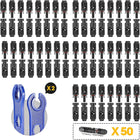 (10AWG) 100PCS Solar Connector with Spanners IP67 Waterproof Male/Female
(10AWG) 100PCS Solar Connector with Spanners IP67 Waterproof Male/Female
 M/FF & F/MM Solar Connectors
M/FF & F/MM Solar Connectors
 Solar Crimper Tool Kit
Solar Crimper Tool Kit
 Solar Panel Mounting Z Brackets
Solar Panel Mounting Z Brackets
 Solar Extension Cable
Solar Extension Cable
 40A MPPT 12V-48V
40A MPPT 12V-48V
 41 in Mount Brackets
41 in Mount Brackets
 Solar Double Cable Entry Gland Box
Solar Double Cable Entry Gland Box
 30A Solar Fuse Holder
30A Solar Fuse Holder
 M/FFFF & F/MMMM Solar Connector
M/FFFF & F/MMMM Solar Connector
 40A MPPT 12V/24V
40A MPPT 12V/24V
 MMF+FFM Branch Connectors
MMF+FFM Branch Connectors
 (10AWG) 12PCS Solar Connector with Spanners IP67 Waterproof Male/Female
(10AWG) 12PCS Solar Connector with Spanners IP67 Waterproof Male/Female
 6Feet 14AWG Solar Connector to DC Adapter
6Feet 14AWG Solar Connector to DC Adapter
 15A Solar Fuse Holder
15A Solar Fuse Holder
 M/FFF & F/MMM Solar Connector
M/FFF & F/MMM Solar Connector
 (10AWG) 44PCS Solar Connector with Spanners IP67 Waterproof Male/Female
(10AWG) 44PCS Solar Connector with Spanners IP67 Waterproof Male/Female
 HOT
2000W Pure Sine Wave
HOT
2000W Pure Sine Wave
 60A MPPT 12V/24V
60A MPPT 12V/24V
 41 in Mount Brackets Plus
41 in Mount Brackets Plus
 Solar Crimper
Solar Crimper
 5 PCS 15A Solar Fuse Holder
5 PCS 15A Solar Fuse Holder
 3000W Pure Sine Wave
3000W Pure Sine Wave
 12V/24V PWM 30A
12V/24V PWM 30A
 Controller to Battery Cable
Controller to Battery Cable
 BougeRV Battery Cable with Flexible Silicone and Pure Copper Wire Set
BougeRV Battery Cable with Flexible Silicone and Pure Copper Wire Set
 White Solar Weatherproof Double Cable Entry Gland
White Solar Weatherproof Double Cable Entry Gland
 30A MPPT 12V/24V
30A MPPT 12V/24V
 58 in Mount Brackets
58 in Mount Brackets
 28 in Mount Brackets
28 in Mount Brackets
 1000W Pure Sine Wave
1000W Pure Sine Wave
 12V/24V PWM 10A
12V/24V PWM 10A
 BougeRV 2.2 Feet 10AWG Solar Connector to ADS Adapter
BougeRV 2.2 Feet 10AWG Solar Connector to ADS Adapter
 12V Car Female Cigarette Lighter Plug to Battery Eyelet Terminals Extension Cable with 20A Fuse 3 Feet 14AWG
12V Car Female Cigarette Lighter Plug to Battery Eyelet Terminals Extension Cable with 20A Fuse 3 Feet 14AWG
 Group 24 LiFePO4 Battery
Group 24 LiFePO4 Battery
 12V/24V PWM 20A
12V/24V PWM 20A
 100A MPPT 12V-48V
100A MPPT 12V-48V
 (8AWG) 12PCS Solar Connector with Spanners IP67 Waterproof Male/Female
(8AWG) 12PCS Solar Connector with Spanners IP67 Waterproof Male/Female
 Solar Panel Mounting Z Brackets
Solar Panel Mounting Z Brackets
 (10AWG) 100PCS Solar Connector with Spanners IP67 Waterproof Male/Female
(10AWG) 100PCS Solar Connector with Spanners IP67 Waterproof Male/Female
 MFF/FMM Solar Connector
MFF/FMM Solar Connector
 MFFFF/FMMMM Solar Connector
MFFFF/FMMMM Solar Connector
 MFFF/FMMM Solar Connector
MFFF/FMMM Solar Connector
 New Camping Lantern Black
New Camping Lantern Black
 New Camping Lantern
New Camping Lantern
 Portable Camping Lantern
Portable Camping Lantern
 Zoomable Camping Flashlight
Zoomable Camping Flashlight
 Movable Area Light
Movable Area Light
 BougeRV AL05 Multifunctional Area Light Rechargeable Outdoor Headlamp
BougeRV AL05 Multifunctional Area Light Rechargeable Outdoor Headlamp
 BougeRV AL05 PRO Multifunctional Area Light Waterproof Camping Light
BougeRV AL05 PRO Multifunctional Area Light Waterproof Camping Light
 BougeRV AL06 Portable Camping Lantern Rechargeable Emergency Flashlight
BougeRV AL06 Portable Camping Lantern Rechargeable Emergency Flashlight
 BougeRV WL02 Waterproof Work Light for Outdoor&Garage
BougeRV WL02 Waterproof Work Light for Outdoor&Garage
 BougeRV WL01 LITE Rechargeable Work Light 180° Rotate Job Site Lighting
BougeRV WL01 LITE Rechargeable Work Light 180° Rotate Job Site Lighting
 BougeRV WL01 Rechargeable Work Light 180° Rotate Job Site Lighting
BougeRV WL01 Rechargeable Work Light 180° Rotate Job Site Lighting
 BougeRV WL01 PRO Rechargeable Work Light 180° Rotate Job Site Lighting
BougeRV WL01 PRO Rechargeable Work Light 180° Rotate Job Site Lighting
 BougeRV AL07 Rechargeable Camping Light Ambient Lantern
BougeRV AL07 Rechargeable Camping Light Ambient Lantern
 Atmosphere Light String
Atmosphere Light String
 Portable Flashlight Tent Lantern
Portable Flashlight Tent Lantern
 30AMP RV Electrical Plug
30AMP RV Electrical Plug
 A/C Filters Replacement
A/C Filters Replacement
 Hitch Receiver Silencer Pad
Hitch Receiver Silencer Pad
 Tongue Jack Protective Cover
Tongue Jack Protective Cover
 Air Grille Replacement
Air Grille Replacement
 Air Conditioner Cover
Air Conditioner Cover
 Dual Axle Wheel Cover
Dual Axle Wheel Cover
 Propane Tank Cover
Propane Tank Cover
 BougeRV 30 AMP RV Plug Electrical Plug Adapter with Handle (Male Plug)
BougeRV 30 AMP RV Plug Electrical Plug Adapter with Handle (Male Plug)
 BougeRV 600D Universal Trailer RV Electric Tongue Jack Protective Cover with D rings
BougeRV 600D Universal Trailer RV Electric Tongue Jack Protective Cover with D rings
 BougeRV RV Flying Insect Screen
BougeRV RV Flying Insect Screen
 BougeRV RV Furnace Vent Screen
BougeRV RV Furnace Vent Screen
 BougeRV RV Skylight Vent Cover, Magnetic Foldable Camper Window Sun Shade
BougeRV RV Skylight Vent Cover, Magnetic Foldable Camper Window Sun Shade
 BougeRV RV Toilet Seal Flush Ball Seal
BougeRV RV Toilet Seal Flush Ball Seal
 Coin Holder
Coin Holder
 Coin Holder
Coin Holder
 Cup Holder Expander
Cup Holder Expander
 Truck Tent
Truck Tent
 Steering Wheel Eating Tray
Steering Wheel Eating Tray
 Car Sun Visor Vanity Mirror
Car Sun Visor Vanity Mirror
 Back Seat Extender
Back Seat Extender
 Cup Holder Phone Mount
Cup Holder Phone Mount
 Cup Holder Expander
Cup Holder Expander
 JOYTUTUS 47” Car Snow Brush
JOYTUTUS 47” Car Snow Brush
 JOYTUTUS Cup Holder Tray, fit in 2.75-3.25 inch Car Holder
JOYTUTUS Cup Holder Tray, fit in 2.75-3.25 inch Car Holder
 JOYTUTUS Cup Holder Phone Mount for Car
JOYTUTUS Cup Holder Phone Mount for Car
 JOYTUTUS Sun Visor for Car
JOYTUTUS Sun Visor for Car
 Pickup Truck Tent 2.0, Waterproof PU2000mm
Pickup Truck Tent 2.0, Waterproof PU2000mm
 JOYTUTUS Truck Bed Air Mattress for 6-6.5Ft
JOYTUTUS Truck Bed Air Mattress for 6-6.5Ft
 JOYTUTUS SUV Air Mattress for Car Camping
JOYTUTUS SUV Air Mattress for Car Camping
 JOYTUTUS Truck Bed Soft Topper for Ford F150 2015-2024 with 5.5' Bed
JOYTUTUS Truck Bed Soft Topper for Ford F150 2015-2024 with 5.5' Bed
 Coin Holder
Coin Holder
 Back Seat Extender
Back Seat Extender
 Back Seat Extender
Back Seat Extender
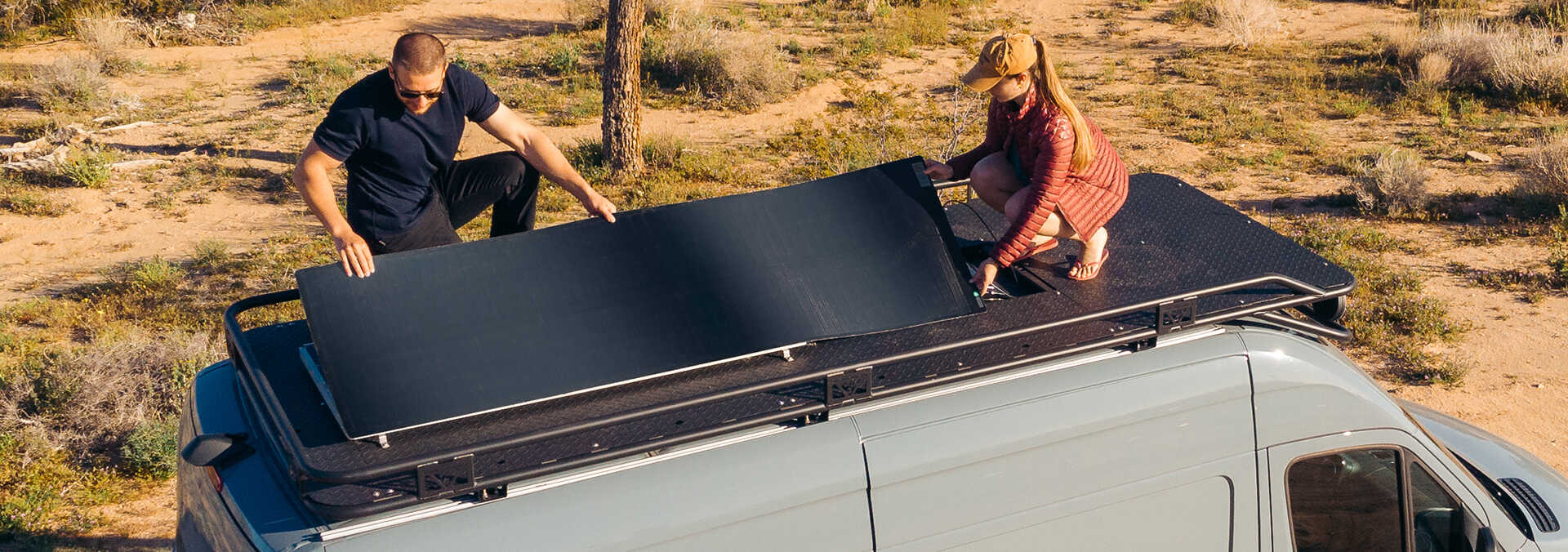
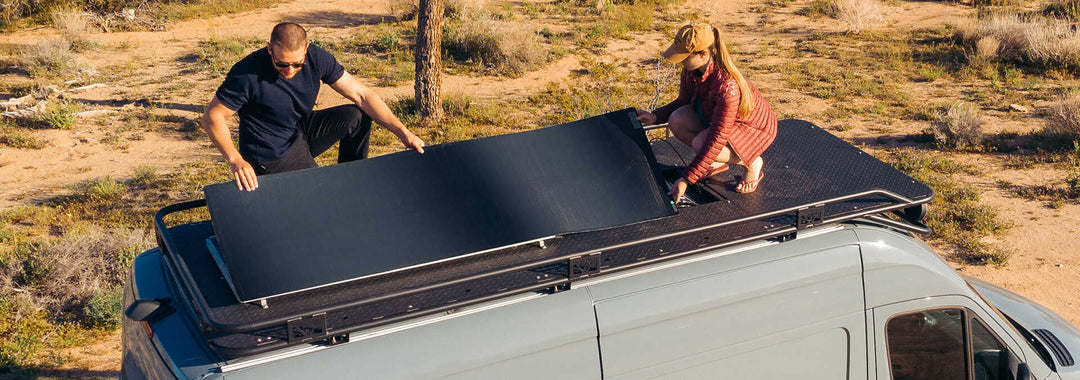
Stay powered on the go with BougeRV Solar Panels! From CIGS flexible solar panels for uneven surfaces like boats and RVs, to Fiberglass solar panels that withstand extreme weather, our range offers durable, high-efficiency solutions for all outdoor needs. Featuring TOPCon technology for maximum sunlight conversion and Rigid bifacial solar panels for extra energy, BougeRV has the perfect solar panel to keep you charged and ready for any adventure. Harness the power of the sun, wherever you are!
Stay powered on the go with BougeRV Solar Panels! From CIGS flexible solar panels for uneven surfaces like boats and RVs, to Fiberglass solar panels that withstand extreme weather, our range offers durable, high-efficiency solutions for all outdoor needs. Featuring TOPCon technology for maximum sunlight conversion and Rigid bifacial solar panels for extra energy, BougeRV has the perfect solar panel to keep you charged and ready for any adventure. Harness the power of the sun, wherever you are!





How to Choose a Perfect Solar Panel
Looking to harness solar energy but not sure which panel to pick? This guide breaks down everything you need to know about choosing the perfect solar panel for your needs—whether you're powering an RV, cabin, or off-grid setup. From wattage and efficiency to portability and installation tips, BougeRV walks you through the key factors so you can make a smart, confident decision.
Want to keep your solar panels performing at their best? This comprehensive maintenance guide from BougeRV covers everything you need to know—from cleaning tips to inspection checklists. Learn how to extend the life of your panels and maximize energy output with simple, effective upkeep.
Solar panels are made of photovoltaic (PV) cells, usually silicon-based, that convert sunlight into direct current (DC) electricity. When sunlight hits the cells, it excites electrons, creating an electric flow. This DC electricity can be used directly, stored in batteries, or converted to alternating current (AC) with an inverter for home or RV use.
Installing solar panels offers several key benefits:
Cost Savings: Solar panels can significantly reduce your electricity bills by generating free, renewable energy from the sun. Over time, the savings can offset the initial installation cost.
Environmental Impact: Solar power is clean and renewable, reducing reliance on fossil fuels and decreasing your carbon footprint. It helps in combating climate change by lowering greenhouse gas emissions.
Energy Independence: By generating your own electricity, you become less dependent on the grid and energy suppliers, providing more control over your energy consumption.
Low Maintenance: Solar panels require minimal maintenance once installed. They have no moving parts, making them durable and long-lasting with a typical lifespan of 25-30 years.
Off-Grid Capabilities: For remote areas, solar panels provide a reliable off-grid power solution, making them ideal for cabins, RVs, and boats.
Energy Storage: With the addition of battery storage, you can store excess energy for later use, ensuring power availability even during cloudy days or at night.
Monocrystalline panels: Made from a single crystal of silicon, they are the most efficient (usually 15–25%) and durable but also more expensive. They perform better in low light and take up less space.
Polycrystalline panels: Made from multiple silicon fragments melted together, they are less efficient (13–18%) and usually more affordable.
Thin-film panels: Made from materials like amorphous silicon, they are lightweight and flexible but have lower efficiency.
For most RV and residential uses, monocrystalline panels offer the best balance of efficiency and durability.
To calculate how many solar panels you need for your RV, start by estimating your daily power usage in watt-hours (Wh)—add up the wattage of all appliances and multiply by the hours you use them each day. Then divide that total by the daily output of a solar panel. For example, a 100W solar panel can produce about 400–500Wh per day in good sunlight. So if your RV uses around 1,200Wh per day, you’d need 2–3 panels. Don’t forget to factor in battery capacity and weather conditions for a reliable off-grid setup. Read our blog: How Many Solar Panels Do I Need.
The power output depends on the panel’s wattage and sunlight exposure. For example, a 100-watt panel under ideal conditions (about 5 peak sun hours per day) can produce approximately 500 watt-hours (0.5 kWh) daily. Real-world output varies with weather, location, shading, and panel angle.
Absolutely! We offer a range of solar panels specifically designed for RVs and other recreational vehicles. These solar panels are lightweight, durable, and capable of harnessing solar energy to power various appliances and accessories onboard. With our RV solar panels, you can enjoy off-grid adventures without worrying about running out of power.
For camping, the size of the solar panel you need depends on your daily power needs—such as charging phones, lights, or a portable fridge. A 100W to 200W portable solar panel from BougeRV, is ideal for most campers.
A 100W panel can typically generate around 400–500Wh per day in full sun, enough to power small devices or keep a 12V battery charged. If you're using higher-draw equipment or camping off-grid for several days, consider a 200W panel or a solar kit with a charge controller and battery storage for more reliable energy.
Absolutely! Solar panels are a versatile and efficient solution for both residential and commercial properties. BougeRV offers a range of high-quality solar panels suitable for home rooftops, small businesses, and larger commercial installations. By installing solar panels, you can reduce electricity bills, increase energy independence, and lower your carbon footprint.
The cost of a solar panel generally ranges from $80 to $500 or more per panel, depending on factors like wattage, efficiency, type, and intended use.
For example, a 100W panel might cost around $80–$150, while a 400W high-efficiency monocrystalline panel can cost $250–$500. On a per-watt basis, prices typically fall between $0.60 and $1.50, with monocrystalline panels (more efficient and compact) costing more than polycrystalline or thin-film panels.
RV solar panels typically cost between $100 and $500 per panel, depending on their wattage, portability, and features.
12V solar panels are commonly used for charging batteries in various applications, including boats, RVs, and off-grid systems. If you have a 12V battery system or need to power 12V devices, our 12V solar panels are an ideal choice. We also provide 24V solar panels for high voltage system.
Solar panels are designed to be durable and long-lasting. Most high-quality solar panels come with warranties ranging from 25 to 30 years, guaranteeing their performance over an extended period. With proper maintenance and regular cleaning, solar panels can continue to generate electricity well beyond their warranty period.
Yes, solar panels generate electricity from diffuse sunlight, not just direct rays. However, output drops significantly—often to 10–25% of full capacity. That’s why battery storage or a backup power source is important for consistent energy availability.



